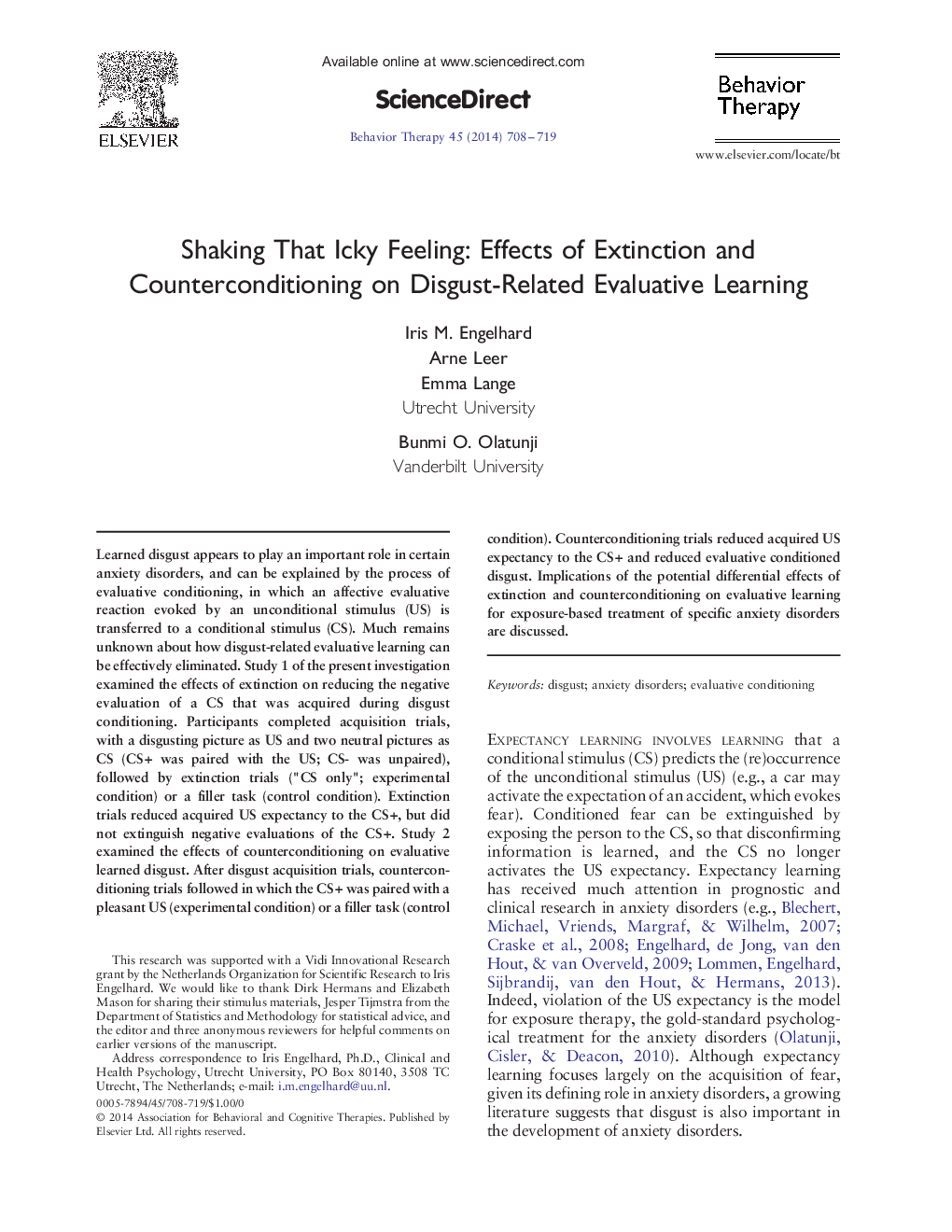| Article ID | Journal | Published Year | Pages | File Type |
|---|---|---|---|---|
| 901468 | Behavior Therapy | 2014 | 12 Pages |
•Learned disgust plays an important role in certain anxiety disorders and may be acquired through evaluative conditioning•Much remains unknown about how disgust-related evaluative learning can be effectively eliminated•Study 1 found that extinction learning did not reduce disgust-related evaluative learning•Study 2 found that counterconditioning reduced disgust-related evaluative learning•Standard exposure therapy may be insufficient to target learned disgust
Learned disgust appears to play an important role in certain anxiety disorders, and can be explained by the process of evaluative conditioning, in which an affective evaluative reaction evoked by an unconditional stimulus (US) is transferred to a conditional stimulus (CS). Much remains unknown about how disgust-related evaluative learning can be effectively eliminated. Study 1 of the present investigation examined the effects of extinction on reducing the negative evaluation of a CS that was acquired during disgust conditioning. Participants completed acquisition trials, with a disgusting picture as US and two neutral pictures as CS (CS + was paired with the US; CS- was unpaired), followed by extinction trials ("CS only"; experimental condition) or a filler task (control condition). Extinction trials reduced acquired US expectancy to the CS +, but did not extinguish negative evaluations of the CS +. Study 2 examined the effects of counterconditioning on evaluative learned disgust. After disgust acquisition trials, counterconditioning trials followed in which the CS + was paired with a pleasant US (experimental condition) or a filler task (control condition). Counterconditioning trials reduced acquired US expectancy to the CS + and reduced evaluative conditioned disgust. Implications of the potential differential effects of extinction and counterconditioning on evaluative learning for exposure-based treatment of specific anxiety disorders are discussed.
